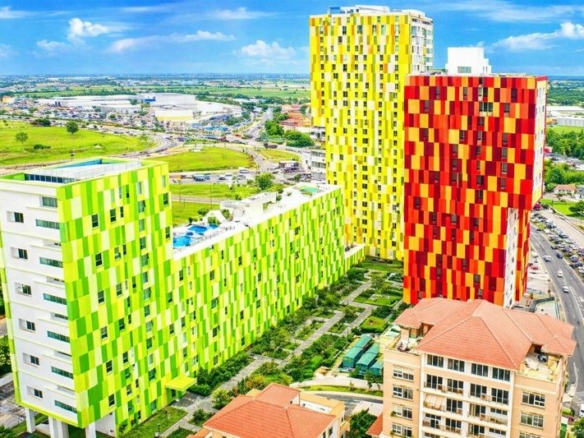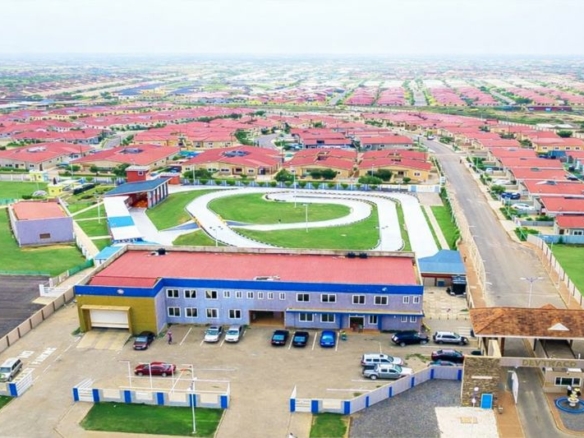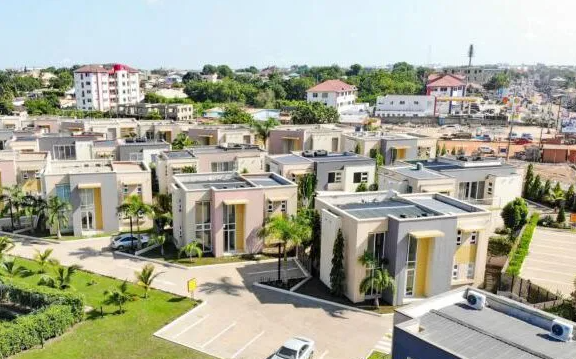In a landscape of rapid urbanisation and economic transformation, Ghana’s real estate market continues to evolve in fascinating ways throughout 2025. Whether you’re a first-time homebuyer, seasoned investor, or property developer, understanding the current dynamics is essential for making informed decisions in this vibrant market. This comprehensive guide explores the latest trends, emerging opportunities, and critical tax considerations shaping Ghana’s property sector this year.
The Current State of Ghana’s Real Estate Market
Ghana’s property market in 2025 reflects both resilience and adaptation in the face of economic challenges. The housing deficit, estimated at over 1.8 million units in recent years, continues to drive demand across various segments of the market. This gap between supply and demand creates a unique environment where strategic investments can yield significant returns.
Key Market Indicators
- Strong demand in urban centres: Accra and Kumasi continue to see the highest property demand, driven by migration and economic opportunities
- Growing middle-class interest: An expanding middle class is fueling demand for quality housing between $50,000-$150,000
- Rental market stability: Monthly rental prices remain strong, ranging from ₵2,000 for standard apartments to $700 for luxury units
- Commercial property revival: Office spaces and retail properties are seeing renewed interest as businesses expand
Major Trends Reshaping Ghana’s Real Estate in 2025
1. Digital Transformation of Property Transactions
Online platforms like Ghana Property Finder have revolutionized how Ghanaians find and purchase real estate. Virtual tours, digital transactions, and comprehensive online listings have become the new standard, making property hunting more efficient and accessible than ever before.
2. Rise of Mixed-Use Developments
Developers are increasingly focusing on creating communities rather than just buildings. These integrated developments combine residential units with retail spaces, offices, and recreational facilities, catering to the modern Ghanaian’s desire for convenience and community.
3. Focus on Affordable Housing Solutions
With the persistent housing deficit, both government initiatives and private developers are prioritizing affordable housing projects. These developments aim to provide quality homes at accessible price points, helping to address the critical housing shortage while opening new market segments.
4. Sustainable and Green Building Practices
Environmental consciousness is gaining traction in Ghana’s real estate sector. Energy-efficient designs, solar installations, and sustainable building materials are becoming increasingly common features in new developments, appealing to environmentally conscious buyers and offering long-term cost savings.
5. Diaspora Investment Surge
Ghanaians living abroad continue to represent a significant portion of property investors. Digital platforms now make it easier than ever for the diaspora to research, view, and purchase properties remotely, contributing to market growth particularly in the mid to high-end segments.
Understanding the 2024-2025 VAT Changes and Their Impact
One of the most significant developments affecting Ghana’s real estate market has been the reintroduction of Value Added Tax (VAT) on certain property transactions. These changes, implemented in 2024, have reshaped how buyers approach property purchases and how developers price their offerings.
VAT Rate Structure on Real Estate
The Ghana Revenue Authority (GRA) has established a two-tier VAT system for real estate:
- 5% VAT: Applies to houses or apartments supplied directly by estate developers and commercial rental properties (plus 1% COVID-19 levy, making it effectively 6%)
- 15% VAT: Applies to land sold for non-agricultural or non-dwelling purposes, civil engineering works, landscaping, and professional services (plus 1% COVID-19 levy, totalling 16%)
Practical Implications for Buyers
These VAT changes have several practical implications for property transactions:
- Pricing transparency: Always clarify whether listed prices include VAT or if it will be added on top
- Budget adjustments: Factor in the additional 6% or 16% when planning your property purchase
- Developer selection: Properties from registered estate developers may offer VAT advantages (5% vs. 15%)
- Negotiation leverage: Understanding VAT implications can provide negotiation points when finalizing deals
Example: Cost Impact Analysis
To illustrate how VAT affects final property costs:
Property from Estate Developer:
- Base Price: GHS 500,000
- VAT (5%): GHS 25,000
- COVID-19 Levy (1%): GHS 5,000
- Total Cost: GHS 530,000
Land for Commercial Development:
- Base Price: GHS 500,000
- VAT (15%): GHS 75,000
- COVID-19 Levy (1%): GHS 5,000
- Total Cost: GHS 580,000
This difference of GHS 50,000 demonstrates why understanding VAT implications is crucial for budget planning and investment decisions.
Prime Investment Opportunities in 2025
Despite market challenges, several segments offer promising investment potential:
1. Affordable Housing Projects
With the massive housing deficit, projects targeting the GHS 200,000-400,000 range continue to see strong demand and steady appreciation. These developments, particularly those within commuting distance of major employment centres, offer solid returns for investors.
2. Student Accommodation
Ghana’s growing student population, particularly around institutions like the University of Ghana and KNUST, has created consistent demand for purpose-built student housing. These investments typically offer attractive yields and reliable occupancy rates.
3. Luxury Apartments in Prime Locations
High-end apartments in areas like Cantonments, East Legon, and Airport Residential continue to appreciate well and attract both local wealthy buyers and expatriates. Rental yields in these areas typically range from 6-8% annually.
4. Emerging Neighborhood Development
Areas experiencing infrastructure improvements like Gbetsile, Ayi Mensah Park, and Kwabenya are seeing rapid property value appreciation as accessibility improves and amenities develop. Early investment in these emerging neighbourhoods often yields substantial returns as the areas mature.
How to Navigate the Market Successfully
Research Thoroughly
Utilize comprehensive platforms like Ghana Property Finder to research properties across various locations. Compare prices, amenities, and proximity to essential services before making decisions.
Understand All Costs
Beyond the purchase price, factor in VAT (5% or 15% plus 1% COVID-19 levy), stamp duty, legal fees, and potential renovation costs to avoid budget surprises.
Verify Documentation
Always confirm that properties have proper documentation, including land title certificates and building permits. Working with reputable agents can help navigate this critical aspect.
Consider Future Development
Research planned infrastructure projects near potential investments. New roads, commercial centres, and transportation links can significantly impact property values in surrounding areas.
Conclusion: A Market of Opportunity Despite Challenges
Ghana’s real estate market in 2025 presents a landscape of both challenges and opportunities. While tax considerations and economic factors create complexity, the fundamental demand-supply gap continues to drive growth across multiple segments. By understanding current trends, tax implications, and focusing on high-potential areas, investors and homebuyers can navigate the market successfully.
For those looking to enter or expand their presence in Ghana’s property market, platforms like Ghana Property Finder offer invaluable resources, connecting you with verified listings across the country and providing the market insights needed to make informed decisions.
Frequently Asked Questions
1. How has the reintroduction of VAT affected property prices in Ghana?
The VAT reintroduction has generally led to price increases between 6-16% depending on the property type, though some developers have absorbed portions of this increase to remain competitive.
2. Are there any exemptions to the property VAT in Ghana?
Yes, agricultural land and certain residential properties not supplied by estate developers may qualify for exemptions. Always consult with a tax professional regarding your specific situation.
3. What areas in Ghana currently offer the best investment returns?
Emerging neighbourhoods like Gbetsile, Ayi Mensah Park, and areas with new infrastructure development typically offer the strongest appreciation potential, while established areas like East Legon provide stability.
4. How can overseas Ghanaians safely invest in Ghana’s property market?
Digital platforms like Ghana Property Finder offer comprehensive listings, virtual tours, and connections to verified agents who can represent your interests locally, making remote investments more secure.
5. What documentation should I verify before purchasing property in Ghana?
Essential documents include land title certificates, building permits, tax clearance certificates, and approved architectural plans. Always conduct proper due diligence or work with professionals who can assist.
Ready to find your perfect property in Ghana? Visit Ghana Property Finder today to browse our extensive listings of properties for sale and rent across the country. Our platform offers detailed filters, market insights, and connections to trusted agents to help you navigate your real estate journey with confidence.





